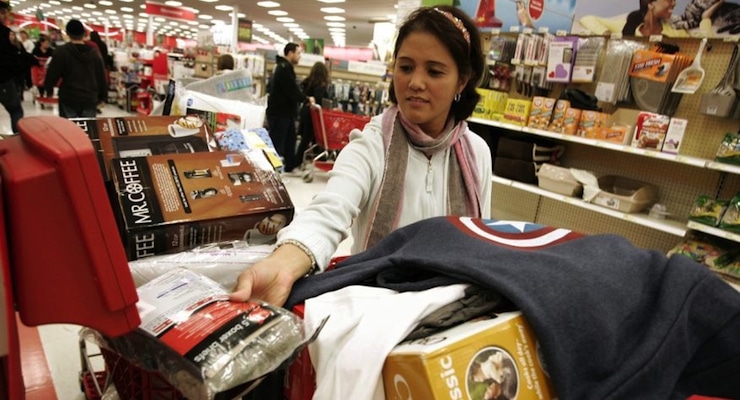

Conference Board Consumer Confidence Index. (Photo: Reuters)
The Conference Board reported on Tuesday the Consumer Confidence Index fell in February to 92.2 from a downwardly revised 97.8 in January. The gauge, which had increased moderately in January, missed the median forecast.
Economists polled by Reuters had expected the Consumer Confidence Index to fall to 97.
“Consumer confidence decreased in February, after posting a modest gain in January,” said Lynn Franco, Director of Economic Indicators at The Conference Board. “Consumers’ assessment of current conditions weakened, primarily due to a less favorable assessment of business conditions.”
Consumers’ views of present-day conditions also declined in the month of February, as the percentage saying business conditions were “good” fell from 27.7% to 26.0%. Those saying business conditions are “bad” gained from 18.8% to 19.8%. Consumers’ views of the labor market were also relatively negative. The number claiming jobs are “plentiful” fell from 23.0% to 22.1%, while those claiming jobs are “hard to get” increased to 24.2% from 23.6%.
“Consumers’ short-term outlook grew more pessimistic, with consumers expressing greater apprehension about business conditions, their personal financial situation, and to a lesser degree, labor market prospects,” Franco added. “Continued turmoil in the financial markets may be rattling consumers, but their assessment of current conditions suggests the economy will continue to expand at a moderate pace in the near-term.”
Consumers were also more negative regarding the short-term outlook than in January. The percentage expecting business conditions to improve over the next six months fell from 15.9% to 14.6%, while those expecting business conditions to worsen increased from 10.7% to 12.0%.
Meanwhile, those anticipating more jobs in the months ahead decreased from 13.4% to 12.2%, while those anticipating fewer jobs gained from 17.0% to 17.2%. The proportion of consumers expecting their incomes to increase fell from 18.6% to 17.2%, while the proportion expecting a reduction in income jumped from 10.7% to 12.5%.
The most damning journalistic sin committed by the media during the era of Russia collusion…
The first ecological study finds mask mandates were not effective at slowing the spread of…
On "What Are the Odds?" Monday, Robert Barnes and Rich Baris note how big tech…
On "What Are the Odds?" Monday, Robert Barnes and Rich Baris discuss why America First…
Personal income fell $1,516.6 billion (7.1%) in February, roughly the consensus forecast, while consumer spending…
Research finds those previously infected by or vaccinated against SARS-CoV-2 are not at risk of…
This website uses cookies.